Windows Phone 8 could let Microsoft accomplish what Google couldn't
This article may contain personal views and opinion from the author.

No doubt you've all seen the coverage of yesterday's presentation by Microsoft. Windows Phone 8 has been previewed, showing off the new capabilities for developers, and a little bit of what to expect as an end user, and it was all pretty impressive, with some features that we expected, some that we only hoped for, and a couple that genuinely surprised us. But, more than anything, it reinforced our idea that Windows Phone will become a major player in the smartphone ecosystem.
Sure, Windows Phone has had a slow start, but anyone who counted out Microsoft in this endeavor didn't really understand how the game is played. Microsoft not only has the deep pockets to make this work, but the entire Windows ecosystem, and maybe most importantly, the knowledge of how to make deals. That last one is a big reason for Apple's success, and the reason for a couple of Google's bigger failures. But, before we get to that, let's start with the technology that was presented.
The Tech
We're sure you've seen Nokia's ads for Windows Phone 7, which proclaim that the "smartphone beta test" is over. While that is a great marketing line, it wasn't exactly the truth for WP7, which was missing a number of core features that smartphone users have come to expect. As we covered, Windows Phone is a pretty solid platform, despite its relative youth, but it had room to grow, and Windows Phone 8 covers a lot of that space.
Some of the announcements were expected. We knew that Windows Phone 8 would be bringing support for multi-core CPUs and higher-res displays, and we weren't disappointed on that front. We knew that Internet Explorer 10 would be baked-in to the system, and it is. IE10 will certainly be a big improvement over IE9, but of course it doesn't take much to improve over that. It wasn't lost on us that Microsoft chose to show off IE10's Sunspider benchmarks and a proprietary HTML5 test, because while it should prove to be far more competent, it will still lag behind the competition in HTML5 support.
We also expected the folding-in of Nokia Maps to the system, but it shouldn't be downplayed as to just how important that will be. Bing Maps was already a solid option, but Nokia Maps adds a huge amount of functionality, including offline maps. And, it's not just better features for North America and Europe. Nokia Maps has turn-by-turn navigation for over 110 countries. Additionally, it has over 70 voices to choose from, and options to download entire cities or countries for offline mapping. Add in the possibility of Yelp integration in the future, and this could be huge.
We didn't necessarily expect to see microSD card support, but it wasn't exactly a surprise, and there was nothing especially interesting about the feature. We're hoping that this points to a possible uncovering of the Windows Phone file system, but we're not holding our breath on that. More expected was the NFC support, which we knew was coming, but the surprise was in the wallet app that Microsoft uncovered. Unlike Apple's recently announced Passcode, Microsoft's offering will not only pull together membership cards, but add in your credit and debit cards, and the carriers are okay with it (more on that later).
WP8 is adding more voice commands, which is nice, but still no dictation as far as we know. Of course, dictation would be more of an end-user feature rather than one to interest developers, so it may just be that this wasn't the time and place to announce it.
Multitasking made the jump from "frustrating" to "relatively useful (if you're not a power user)". We'll have to see how quickly apps that can't stay active in the background take to resume, and we have to see how background downloading is handled, because those were the real issues with WP7's pseudo-multitasking. So far, it's only been announced that VoIP apps and location-aware apps can stay active, so that doesn't sound like it will fix the issues we're worried about with background downloading, although better hardware could fix the resume speed.
The new access hooks for VoIP apps, most notably Skype, to get into the dialer, People app, etc, is also pretty big, and a real potential game-changer. So much so, that we have to hold comments on it for the next section.
The second biggest announcement was that Microsoft intends to kill RIM once and for all. Okay, maybe that wasn't how it was phrased exactly, but as we saw with the Surface tablet announcement, as well as today's announcement, Microsoft is targeting enterprise in a big way. The Surface tablet (especially the Intel variant) is designed for productivity, and WP8 has a slew of new enterprise features, including encryption (like BitLocker), secure boot, LOB App deployment, Device Management, and beefed up Office apps. Office was already a killer feature on WP7, so we're pretty excited to see what's in store for WP8. And, of course, IT managers should be able to use the same tools to manage both Windows 8 devices and Windows Phone 8 devices because of the number one announcement.
The biggest announcement was one that we expected: the "Shared Windows Core". In other words, Windows Phone 8 has the same kernel as Windows 8, but beyond that, networking, multimedia, and driver support will be shared between the platforms. This means that developers will be able to reuse hardware and software drivers between Windows 8 and Windows Phone 8, which should make it even easier than we expected to port products between platforms. This combined with the work Microsoft has done to allow "native code developers" to easily port software to Windows Phone 8 by changing very little code will make for a software ecosystem that should be ready to explode.
Or at least, that's how Microsoft makes it seem. We're a bit curious how this will all work in practice. Microsoft has done a lot of work, and it sounds as though it has been made very easy to port existing Windows software, or even apps from iOS or Android to Windows Phone. Of course, we assume that just means the functional bits in the background. Developers will still need to design the Metro-friendly UI. Microsoft is trying to push the need for that with Windows 8 getting Metro-fied, but we'll have to see how it goes. Still, interoperability alone should be impressive between WP8 and Windows 8, especially in the world of games.
Games are already a strength of Windows Phone, mostly due to the Xbox Live selections, and it should get even stronger. The "Shared Windows Core" extends to DirectX and graphics drivers as well, so it should be pretty easy for developers to port games to the platform. And, given the more powerful hardware coming, it's possible that a developer's biggest concern could be creating touchscreen controls.
Making deals
This is where Microsoft really showed its muscle, even though it was somewhat swept under the rug in favor of the feature announcements. This is also where Microsoft really took aim at Google, because Google has been trying to accomplish for years what Microsoft could pull off with Windows Phone 8. The difference is that Google keeps trying to create products to take down the system from the outside. That worked well with disruptive products like Google Maps, which changed the entire navigation industry. But, it didn't work so well in feeble attempts to break the carrier subsidy model (by selling unlocked devices directly to consumers), take away international calling/SMS revenue from carriers (Google Voice), or cut out carriers from mobile payments (Google Wallet). Perhaps Google expected that the size of Android would give it power in these endeavors, but really it just made it seem like millions of pebbles being thrown at the carrier fortress.
Microsoft, on the other hand, could be something of a dynamite filled Trojan horse being wheeled into that carrier fortress. The small size of the Windows Phone ecosystem, combined with Microsoft's corporate strength has allowed the company to make deals with carriers and create products that have a far better chance of disrupting the system than anything Google has created. Microsoft's Wallet Hub has apparently been sanctioned by carriers, and VoIP integration in Windows Phone 8 could allow a user to have nothing but a data plan, and still have a fully functioning phone. Somewhat strange to think that Google Voice (with a proper app) could be far more successful on Windows Phone than on Android.
Of course, the problem with this idea is that we're still talking about Microsoft, which is not a company that thinks in terms of disrupting markets, and destroying systems that have become too big and alienated from customer interest. Microsoft isn't making deals with carriers to later blow up the system. Microsoft is making deals in order to get premium marketing for Windows Phone, and grow its own market share. The Wallet Hub has been sanctioned by carriers because they will be able to integrate the carrier-backed ISIS payment system. In fact, it seems as though Microsoft is simply building the tool with the Wallet Hub, and not a product. The beauty of the Wallet Hub is that it is open for any bank, credit card, offer service, membership app, etc. to hook in, and offer services.
In a way, Microsoft is taking Google's standard game plan, and using it to gain traction for WP8. Microsoft hasn't built a closed product aimed at taking over a market segment, like Google Wallet. Microsoft has created an open product to allow others to get easier access to that market (much like Google Maps has done.) It's unclear whether Microsoft will get a cut of any mobile payments that run through the Wallet Hub. But, while Google Wallet can't even get on handsets and has been slow to get credit card support, the Wallet Hub will be on every WP8 device, on every carrier, with potential hooks in from every bank, credit card, and mobile payment system, all extremely secure because of the "secure SIM" option. And, because of all of the services potentially hooking in, that also makes the NFC chips far more useful, because it gives service providers an easily defined user-base, rather than the hit-or-miss Android hardware. Once again, if Google were to integrate Wallet into the WP8 Wallet Hub, it could become more successful than it has on Android.
Conclusion
All this just goes to show that playing the game has its benefits. Microsoft has put itself in a great position to really drive forward with big market share gains once Windows Phone 8 comes out. Google learned from Apple that being closed has its limitations, but Microsoft learned from Google that being open has its limitations as well. With Windows Phone, Microsoft has consistently tried to straddle the line between Apple's model, and Google's (although generally falling closer to Apple's side.) But, sometimes it may be best to drive that middle ground, make deals to help your cause, don't aim too high, and remember that success is built on partnerships. We may want the carrier system in the US to change its model, but change is often best achieved from the inside, and maybe it's time Google learned that from Microsoft.

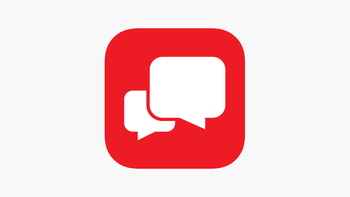
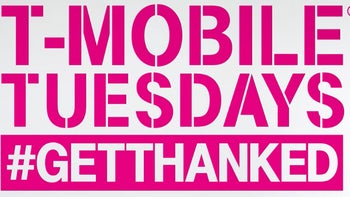
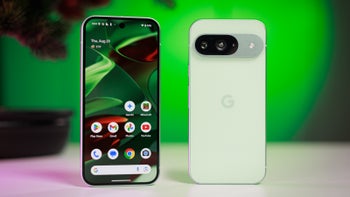
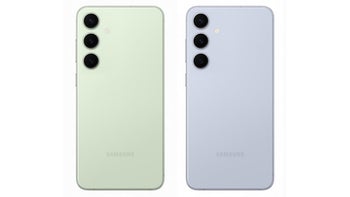

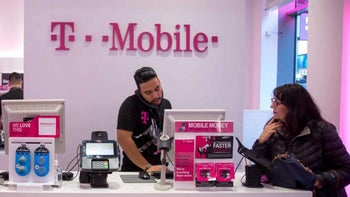

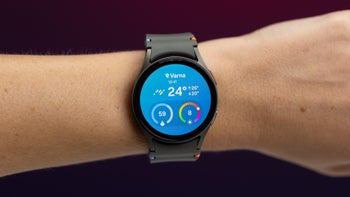
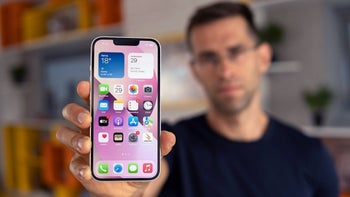
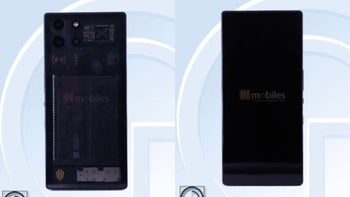
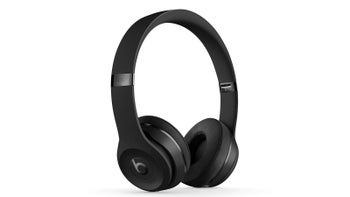
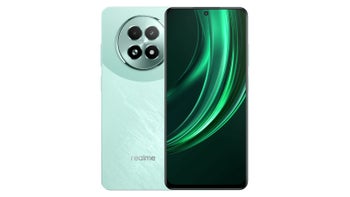
Things that are NOT allowed: